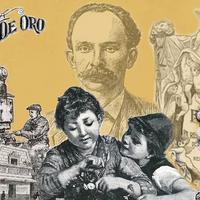Los dos príncipes.
||princes
||왕자들
Die beiden Prinzen.
The two princes.
دو شاهزاده
Les deux princes.
두 왕자.
Du princai.
De twee prinsen.
Dwaj książęta.
Os dois príncipes.
Idea de la poetisa norteamericana Helen Hunt Jackson
Idea|||poet|North American|Helen Hunt Jackson|Hunt|Jackson
Idee der amerikanischen Dichterin Helen Hunt Jackson
Idea of the American poet Helen Hunt Jackson
El palacio está de luto Y en el trono llora el rey, Y la reina está llorando Donde no la pueden ver: En pañuelos de holán fino Lloran la reina y el rey: Los señores del palacio Están llorando también.
||||deuil||||trône|||||||||||||||mouchoirs fins||linon fin||||||||||||||
|palace|||mourning||||throne|cries||king|||queen||crying|Where||||||handkerchiefs||silk|fine|cry||queen|||||lords|||||
Der Palast ist in Trauer, und auf dem Thron weint der König, und die Königin weint, wo man sie nicht sehen kann: In Taschentüchern von feinem Ruß weinen die Königin und der König, und auch die Herren des Palastes weinen.
The palace is in mourning And on the throne the king cries, And the queen is crying Where they cannot see it: In scarves of fine holán The queen and the king cry: The palace lords are also crying.
Los caballos llevan negro El penacho y el arnés: Los caballos no han comido, Porque no quieren comer: El laurel del patio grande Quedó sin hoja esta vez: Todo el mundo fue al entierro Con coronas de laurel: —¡El hijo del rey se ha muerto!
|||||panache noir|||harnais|||||||||||laurier|||||||||||||||||||||||||
The|horses|carry|||plume|||harness|||||eaten||||||laurel||yard||||leaf||time||||went||burial||crowns||laurel|||||||dead
Die Pferde tragen schwarz Das Gefieder und das Geschirr: Die Pferde haben nicht gefressen, weil sie nicht fressen wollen: Der Lorbeer des großen Hofes blieb diesmal blattlos: Alle gingen zum Begräbnis Mit Lorbeerkränzen: -Der Königssohn ist tot!
The horses wear black The plume and harness: The horses have not eaten, Because they do not want to eat: The laurel of the large courtyard was left without a leaf this time: Everyone went to the funeral With laurel wreaths: —The king's son has died!
¡Se le ha muerto el hijo al rey!
Der Sohn des Königs ist gestorben!
The son has died to the king!
En los álamos del monte Tiene su casa el pastor: La pastora está diciendo «¿Por qué tiene luz el sol?» Las ovejas, cabizbajas, Vienen todas al portón: ¡Una caja larga y honda Está forrando el pastor!
||peupliers|||||||||||||||||||moutons|têtes baissées||||portail||caisse|||profonde||recouvrant||
||poplars|||||||shepherd||shepherdess||||||||||sheep|downcast||||gate|A||||deep||covering with||pastor
In den Pappeln auf dem Berg Der Hirte hat sein Haus: Die Hirtin sagt: "Warum hat die Sonne Licht?" Die Schafe, zerknirscht, kommen alle zum Gatter: Ein langer, tiefer Kasten, den der Hirte füttert!
In the poplars of the mountain The shepherd has his house: The shepherdess is saying "Why does the sun have light?" The sheep, crestfallen, all come to the gate: A long and deep box is shepherding the shepherd!
Entra y sale un perro triste: Canta allá adentro una voz «¡Pajarito, yo estoy loca, Llévame donde él voló!»: El pastor coge llorando La pala y el azadón: Abre en la tierra una fosa: Echa en la fosa una flor: —¡Se quedó el pastor sin hijo!
|||||||||||Petit oiseau||||||||||||||||houe||||||||||||||||||
|||||||||||Little bird||||Take me|||flew|||takes|||shovel|||hoe||||||grave||||grave||||||pastor||
Ein trauriger Hund geht ein und aus: Eine Stimme singt dort drinnen: "Kleiner Vogel, ich bin verrückt, nimm mich mit, wo er geflogen ist! Der Hirte nimmt unter Tränen den Spaten und die Hacke: Er öffnet eine Grube in der Erde: Er wirft eine Blume in die Grube: -Der Hirte bleibt ohne Sohn!
A sad dog comes in and out: Sing in there a voice «Little bird, I'm crazy, Take me where he flew!»: The shepherd catches crying The shovel and the hoe: Open a pit in the ground: Throw a flower in the pit : "The pastor was left without a son!"
¡Murió el hijo del pastor!
He died||||
Der Sohn des Schafhirten ist tot!
The pastor's son died!

